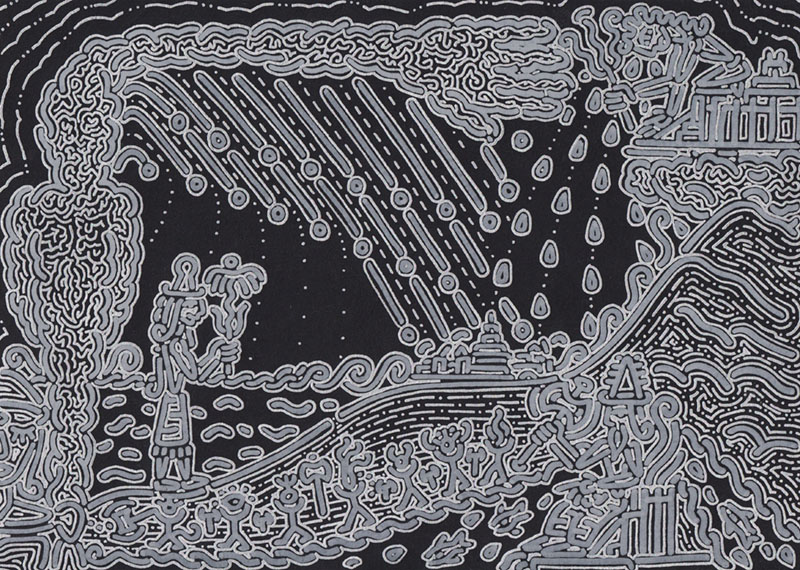The 14th-century BC Song of Ullikummi is a well-preserved text found among the 30,000 clay tablets in the Cuneiform Royal Archive at Hattusa, the sometime capital of the Hittite Empire, near the modern town of Boğazköy, Çorum Province, Turkey. Detailing a battle between the gods which is occasionally reminiscent of later Greek texts such as Hesiod's Theogony and the myth of Typhon, Ullikummi recounts a somewhat surreal attempt by Kumarbi to overthrow the Storm God Teshub and destroy the city of Kummiya. Rather than being a Hittite story, however, its cast of characters reveals it to be a Hurrian myth from northern Syria, and this tale is one of a large corpus of mythology recorded in the Hittite language that discloses an extensive cultural exchange between the two civilisations.
|
The world's myth systems are replete with giants whose rebellious actions help to shape the world, but the strange Hittite-Hurrian 'Song of Ullikummi' seems to move beyond such archetypal and primordial events to describe real-world phenomena. This pseudo-historicity only becomes clear once we perceive the technical languages enfolded within myth, disclosing a genuinely archaic method of interpreting of the world and its natural processes.
The 14th-century BC Song of Ullikummi is a well-preserved text found among the 30,000 clay tablets in the Cuneiform Royal Archive at Hattusa, the sometime capital of the Hittite Empire, near the modern town of Boğazköy, Çorum Province, Turkey. Detailing a battle between the gods which is occasionally reminiscent of later Greek texts such as Hesiod's Theogony and the myth of Typhon, Ullikummi recounts a somewhat surreal attempt by Kumarbi to overthrow the Storm God Teshub and destroy the city of Kummiya. Rather than being a Hittite story, however, its cast of characters reveals it to be a Hurrian myth from northern Syria, and this tale is one of a large corpus of mythology recorded in the Hittite language that discloses an extensive cultural exchange between the two civilisations.
5 Comments
|
ARCHAIC VISIONS
|




 RSS Feed
RSS Feed






